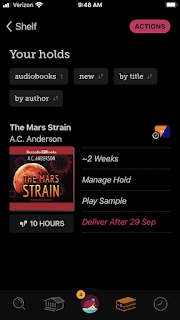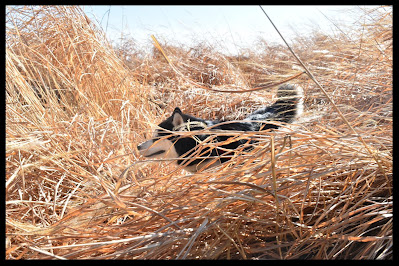To write solid action scenes, start by understanding humans.
Action is almost always the result of overwhelming emotion. If inertia is the
strongest force in the universe, you need something that shatters it. That
something becomes the scene’s (and your character’s) DRIVER. Example: Breaking
Bad. The US healthcare system failed Walter. Rage and desperation drove him and
the series. Maybe you can see how that emotion also drove the rising arc of increasingly
brutal action as the series progressed.
Once you have a driver, you take human physiology into account.
It should be familiar. Fight, flight, or freeze. You must know your character(s)
well enough to know what prompts would make them fight, which would make them
run, and which would make them freeze. Characters can progress from one stage
to another. For example, you hear a noise in the house at 2AM. You freeze. It’s
in your bedroom! You throw off the freeze and run for your life. It’s a bat
fluttering around the room. Now you slip into fight mode – not that you’re
going to start swinging at the bat (unless you are – in that case, get on with
your bad self) – you’re going to shift into action. You close the bedroom door to
keep the bat contained, and you open your window so the bat can escape. Maybe
you switch on a light to encourage the bat to land so you can grab it in a towel
and yeet it from the window. The process can go in reverse, too. Fight first,
run when fighting isn’t working, then freezing and playing dead when even
running fails.
Finally, it helps to consider which kind of action scene you
need.
- Active
- Reactive
An active scene is self-initiated. Action results from
internal stimuli (emotion, desire, longing, etc.) Key identifier: A decision or
choice is made.
A reactive scene is externally initiated. Action results
from external stimuli or events (being pursued, being caught, someone throws a
punch.) Key identifier: Surprise.
Active scenes tend to follow a galvanizing moment. Think of Star
Wars: A New Hope. The Millennium Falcon gets tractored into the Death Star. Luke
finds out Leia is on the station. She’s the reason he’s in this mess in the first
place. His family was killed because of her droids. He makes the decision to
rescue her. (It’s common for Active scenes to follow Reactive scenes – someone comes
for you – now you’re going to decide your next action.)
Reactive scenes follow a shock or a surprise. Someone jumps
out of a dark alley with a gun. At its purest, most primitive, this is the leopard
chasing you across the savannah because it wants to invite you to lunch the
hard way.
Driver. Fight, flight, or freeze. Active or Reactive Scene.
Next: Chemistry. The primitive portion of the human brain produces
chemicals when it perceives danger. Those chemicals are primal – they are old –
they are bound up in survival – they can be brutal. These chemicals shut down
executive function. Thinking stops. Reaction and instinct take the wheel. For
the most part, emotion – except for fear – stops. Time enough for that
after
you survive. This is especially true for reactive scenes. Active scenes offer
more leeway around thinking and feeling because the character may never tip
over into fight, flight, or freeze – even if they end up actually fighting. Because
it was a decision, characters can retain executive function longer and may only
lose it if their plans fail.
Now you need to know the purpose of the scene. You need to
know what the protagonist and the antagonist stand to win and lose in
the scene. How does the action serve the character arc and the story arc?
Next, sketch out the skeleton of the action beats in the
scene. (Example: Vlad jumps out of the dark into Jenny’s path. She runs.
Struggle at the doorway knocks free splinter of wood. When he hits her and she
falls, she grabs the wood. He picks her up by the throat. She stabs him through
the heart.) Now sketch in the dialogue if it’s necessary for the scene. Go back
and fill in the POV character’s sensory and emotional detail. Use a light touch
in a reactive scene (in the event that Jenny wasn’t looking for Vlad and this
is a huge shocker.) Layer in more sensory and emotional detail if it’s an
active scene (Jenny decided to go hunting Vlad, cause this girl is done.)
Finally, flesh out the action. Focus on
crisp, clear stage directions. Pierce Jenny’s hand with the sharp wood and let
the blood run so you can lead up to driving that stake into Vlad’s heart. You
don’t need every single move. You do need to plug any ‘how did they get there’, ‘where
did that wolf come from’ holes in the scene.
Your action scenes need to result in emotion and thought after the action dies down. They should change the character(s), drive the story arc, and the character arc. Also, once you've done this layer technique a time or two, you'll just write an action scene without having to block it out so technically. And wow, hasn’t this turned into a whole-ass treatise?
Which means it’s time for the standard disclaimer: This is
only ONE way to write action. It’s a tool I find useful. Pick it up. See if it
fits your hand. If it doesn’t, toss it like a hot rock. It’s only as good as
the help it provides.



































